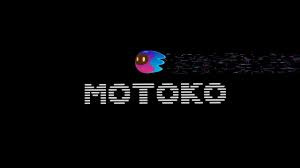Advancing Web3.0 with Next-Gen Smart Contracts
In the dynamic landscape of technology, the
evolution of Web3.0 has catalyzed groundbreaking innovations, particularly
within blockchain and smart contracts development. As industries seek more
efficient, secure, and transparent solutions, the demand for next-gen smart
contracts has surged. This transformative shift has propelled the emergence of advanced
blockchain development solutions, such as the pioneering work of a Blockchain
development company, to redefine the industry.
Blockchain Development Company: A
Catalyst for Innovation
At the forefront of this digital revolution are
Blockchain development companies, dedicated to pushing the boundaries of
blockchain technology. These companies, equipped with seasoned experts and a
track record of successful projects, drive innovation by delivering
cutting-edge solutions that harness the power of blockchain for real-world
applications. Through their relentless research and development, they pave the
way for the next generation of smart contracts, powered by innovative
blockchain engines like MOTOKO.
Next-Gen Smart Contracts: Redefining
Capabilities
In the era of digital transformation, traditional
smart contracts are giving way to next-gen counterparts, offering enhanced
functionalities and capabilities. These next-gen smart contracts, driven by
advancements in blockchain technology, are poised to revolutionize diverse
industries, from finance to supply chain management. By incorporating features
like self-executing code and decentralized governance, they offer unparalleled
security, transparency, and efficiency.
MOTOKO Blockchain Solutions: Empowering
Innovation
Central to this technological revolution is MOTOKO
Blockchain Solutions, a cutting-edge platform developed by leading Blockchain development
companies. Built upon extensive research and development, MOTOKO amalgamates
blockchain technology with advanced consensus mechanisms to offer a robust and
scalable solution for next-gen smart contracts. With its modular architecture
and interoperability features, MOTOKO empowers businesses to unlock new
possibilities and drive innovation in the digital era.
Understanding Next-Gen Smart
Contracts
Definition and Background:
Next-Gen Smart Contracts represent a paradigm shift
in digital transactions, embodying the
principles of decentralization, transparency, and security. Developed
by leading Blockchain Development Companies, these contracts offer a robust
framework for automated interactions in the Web3.0 era.
Key Features and Unique Aspects:
Modular Architecture:
Next-Gen Smart Contracts feature a modular
architecture, providing unparalleled flexibility and customization. Developers
can easily tailor contracts to specific use cases by integrating modular
components and templates.
Robust Security Infrastructure:
These contracts prioritize security and privacy with
advanced encryption algorithms and decentralized storage solutions. Sensitive
data and transactions are shielded from unauthorized access and tampering,
instilling trust in users.
Advanced Consensus Mechanisms:
Leveraging innovative consensus models like a hybrid
of proof-of-work (PoW) and proof-of-stake (PoS), Next-Gen Smart Contracts
enhance network security and resilience while optimizing energy efficiency and
transaction throughput.
Interoperability Capabilities:
Next-Gen Smart Contracts prioritize interoperability, enabling seamless integration with existing blockchain networks and protocols. Standardized APIs and protocols facilitate cross-chain communication and collaboration, unlocking new possibilities for ecosystem and decentralized solana dapp development.
User-Centric Design Principles:
Designed with user experience in mind, Next-Gen
Smart Contracts offer intuitive interfaces and developer-friendly tools.
Lowering barriers to entry for developers and end-users, these contracts
democratize access to blockchain technology.
In summary, Next-Gen Smart Contracts redefine
digital agreements with their modular architecture, robust security features,
advanced consensus mechanisms, interoperability capabilities, and user-centric design
principles. As Blockchain Development Companies continue to innovate, these
contracts will shape the future of decentralized transactions across diverse
industries.
Technical Aspects of Next-Gen
Smart Contracts
Architecture and Design Principles:
Next-Gen Smart Contracts are built upon a robust and
scalable architecture, tailored to meet the demands of Web3.0. Utilizing a
decentralized network of nodes, these contracts ensure trustless and
tamper-proof transactions. Their modular architecture enables developers to
seamlessly integrate new modules and functionalities, fostering rapid iteration
and innovation.
Consensus Mechanism and Scalability
Solutions:
A key technical innovation of Next-Gen Smart
Contracts is their consensus mechanism, ensuring the integrity and security of
smart contract execution. By combining proof-of-work (PoW) and proof-of-stake
(PoS) mechanisms, these contracts achieve decentralized consensus. Moreover,
they implement off-chain solutions like state channels and sidechains to
enhance scalability and throughput, enabling fast and low-cost transactions.
Integration Capabilities with Existing
Blockchain Networks:
Next-Gen Smart Contracts are designed for
interoperability with existing blockchain networks and protocols, facilitating
seamless integration and collaboration across platforms. Through standardized
APIs and protocols, professional blockchain
developers can easily connect their applications, enabling cross-chain
communication and data exchange. Integration with external data sources further
enhances functionality and versatility, opening new possibilities for
decentralized applications.
Advantages of Next-Gen Smart
Contracts
Enhanced Security Features:
Next-Gen Smart Contracts boast advanced security
measures to protect sensitive data and transactions. By employing cutting-edge
encryption algorithms and decentralized storage solutions, they ensure that
critical information remains safeguarded against unauthorized access and
tampering. Moreover, their decentralized consensus mechanism significantly
reduces the risk of single points of failure, enhancing overall resilience
against potential cyber attacks and manipulation.
Improved Scalability and Performance:
Addressing the longstanding challenge of scalability
in blockchain networks, Next-Gen Smart Contracts leverage off-chain solutions
to enhance performance. These solutions enable high throughput and low latency,
making them suitable for a diverse range of applications. Whether facilitating
high-frequency trading or powering real-time gaming platforms, Next-Gen Smart
Contracts deliver the scalability and performance necessary to meet the demands
of modern digital transactions.
Potential for Innovative Use Cases:
The inherent flexibility and versatility of Next-Gen
Smart Contracts unlock a myriad of innovative use cases across industries. From
revolutionizing decentralized finance (DeFi) applications to optimizing supply
chain management processes, these contracts empower businesses to reimagine
traditional workflows and seize new opportunities for growth and efficiency. By
facilitating peer-to-peer transactions, automated processes, and decentralized
governance, Next-Gen Smart Contracts pave the way for disruptive innovations
that redefine the landscape of digital interactions.
Conclusion:
Next-Gen Smart Contracts powered by Blockchain
Development Companies like MOTOKO Blockchain Solutions represent the future of
digital transactions. Through their technical advancements and innovative
features, these contracts redefine possibilities across industries, driving
efficiency, transparency, and security in the digital age.
As we navigate challenges and opportunities, the
potential of Next-Gen Smart Contracts to transform industries is undeniable.
With continued innovation and collaboration, they will revolutionize the way we
interact and transact in the digital economy.



.png)
Comments
Post a Comment